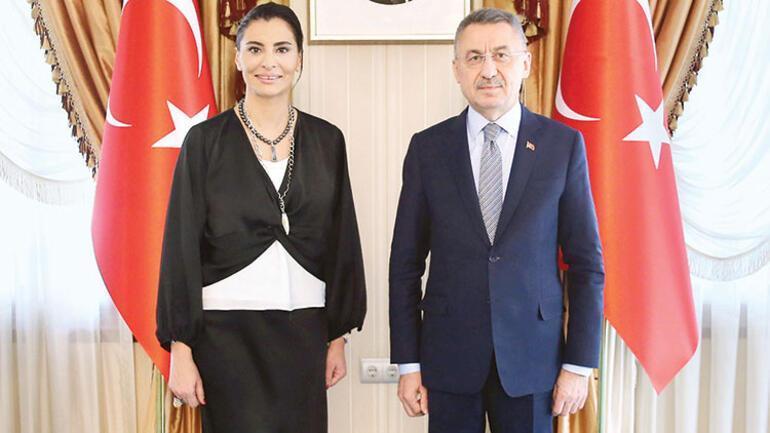
Around 95 percent of the problems concerning the executive-presidential system stem from its implementation, Turkish Vice President Fuat Oktay has said, stressing that those within the state apparatus could not yet fully get rid of the habits of the former administrative model.
“The executive-presidential system is mercilessly criticized. When a change happens, people expect to get results immediately,” Oktay told a small group of journalists on March 9.
Oktay, who has been responsible for the functions of the executive-presidential system ever since it came into force in mid-2018, recalled that a study has shown that 95 percent of the problems about the functions of the system arise from its implementation.
“The problems are coming from the habits of the old system and implementation of the new system. Plus, there is this metaphor of ‘külliye’ [the presidential compound] where a department head or a director [within the bureaucracy] says he or she needs to ask permission from the külliye for accomplishing a request from citizens. They do it when they don’t want to take an initiative, or when they don’t want to approve a request,” he said.
Oktay also cited the need for a new constitution, which has been voiced by President Recep Tayyip Erdoğan.
“The problem about this constitution is its spirit,” he said, referring to the fact that its backbone was written by the military junta in the early 1980s.
“Only 58 out of 177 articles of this constitution have not changed. Its spirit is disturbing. The new constitution should prioritize the individuals, the society and democratic structure,” he said.
“It will be very good if there would be an agreement with the opposition. If not, we will go to our people with our draft in 2023,” Oktay stated. Turkey will go to both presidential and parliamentary polls in 2023.
Three issues with U.S.
On foreign policy matters, Oktay highlighted the ties with the United States under the new Biden administration. He singled out three key problems in ties with Washington.
“We are not comfortable with the fact that it’s cooperating with the terror organization,” he said, referring to the United States’ continued partnership with the YPG in the fight against the radical jihadists in eastern Syria.
Second issue Oktay cited is the tension between Turkey and Greece in the eastern Mediterranean. “The U.S. should be neutral in the eastern Mediterranean. It should not allow countries which are seeking to confine Turkey to its shoreline. There are opportunities to work together,” he said.
Third issue is the ongoing problem concerning Turkey’s deployment of S-400s, he said. The U.S. should not continue to threaten Turkey on the deployment and the use of these systems, Oktay reiterated.
The U.S. imposed sanctions on Turkey in December 2020 under the Countering America’s Adversaries through Sanctions Act (CAATSA). It also ended Turkey’s participation in the F-35 joint fighter project in reaction to the Turkish deployment of the Russian air defense system.